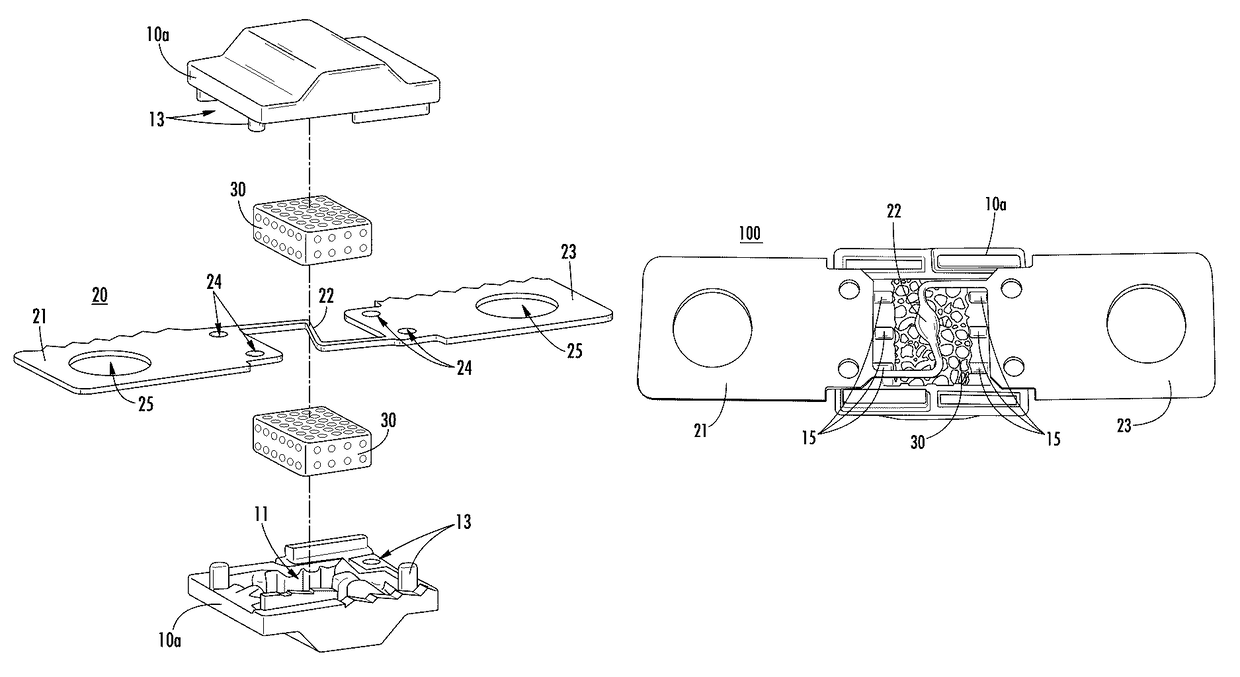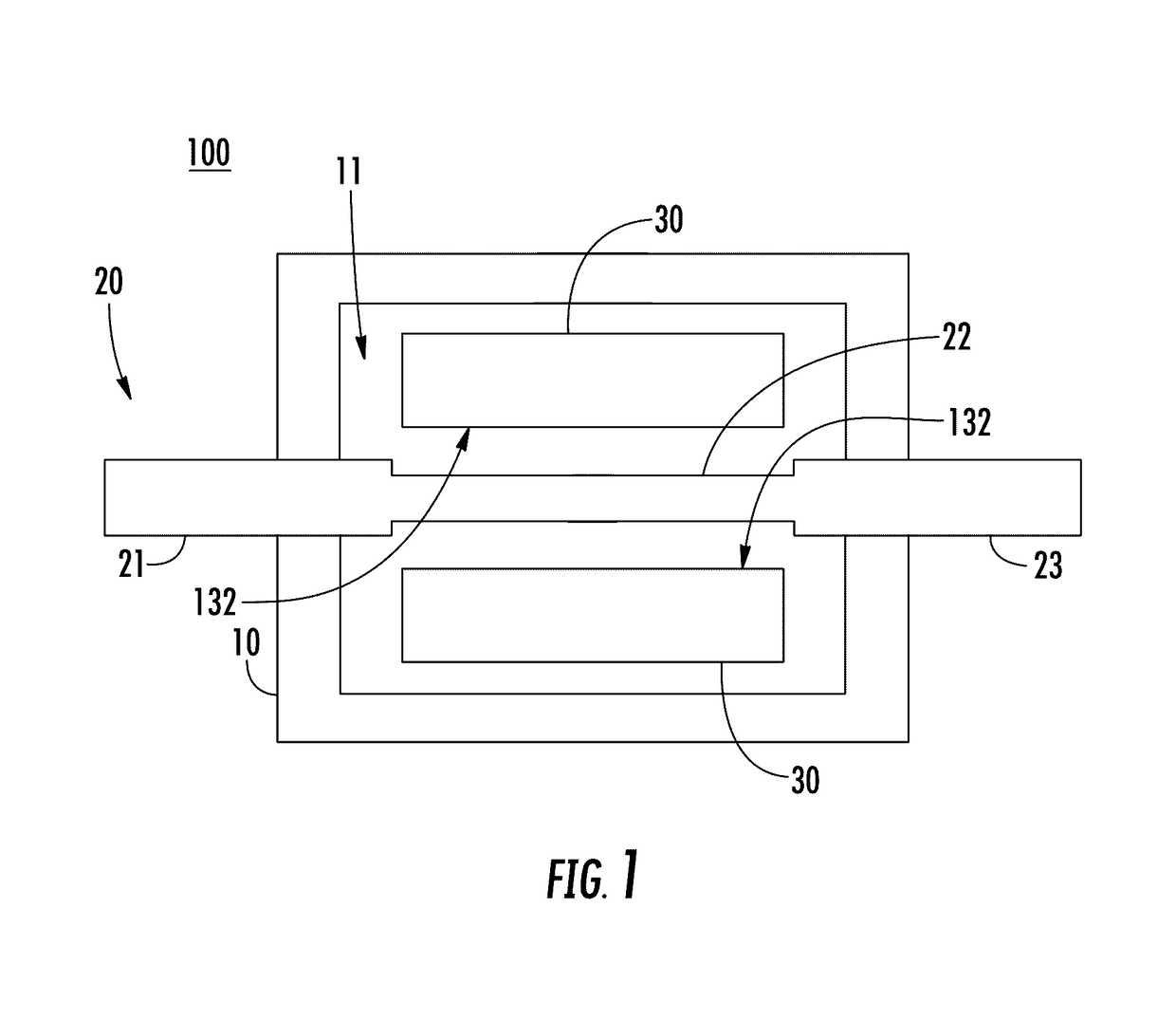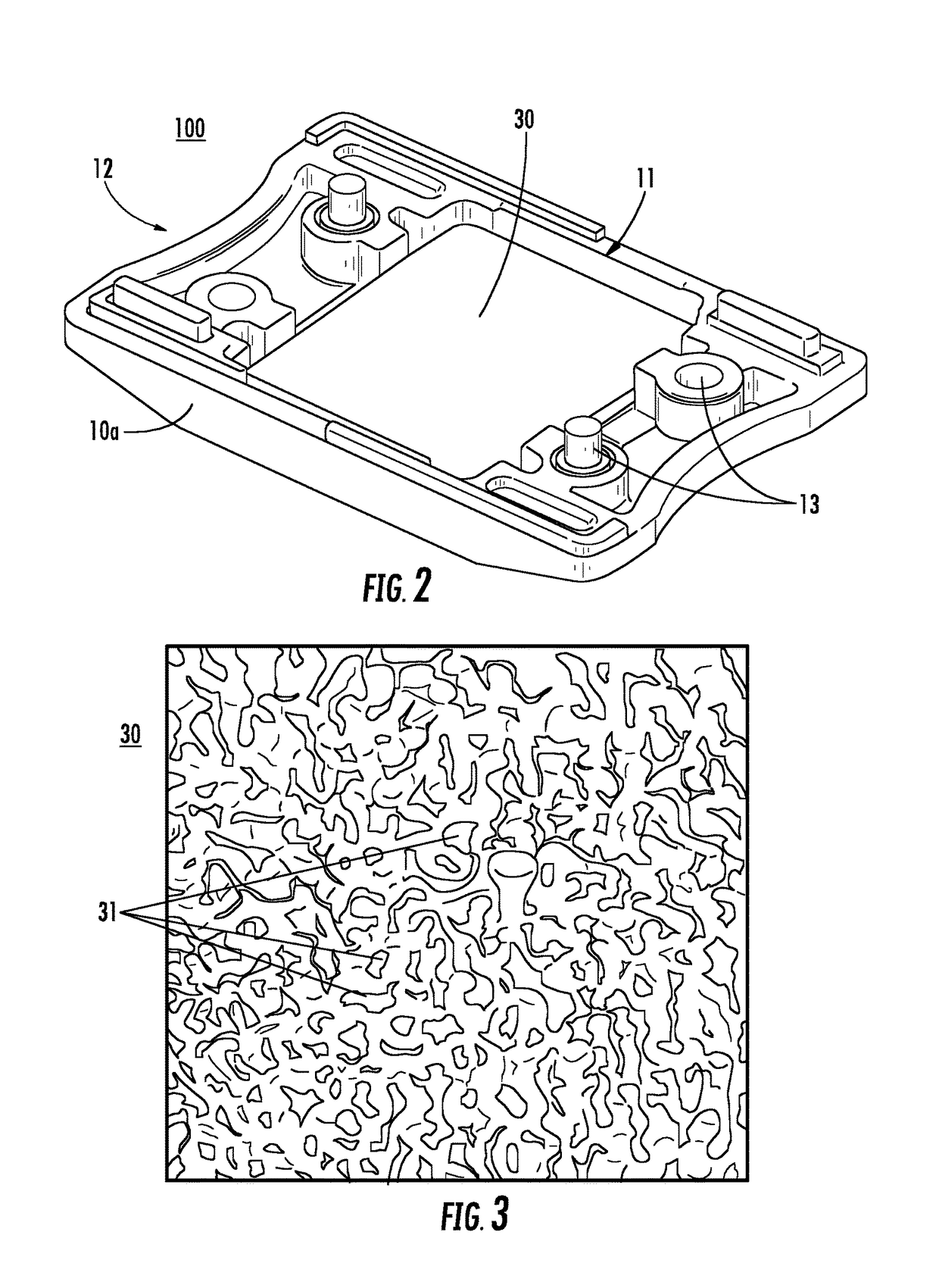Porous inlay for fuse housing
a fuse housing and porous inlay technology, applied in the field of porous inlay for fuse housing use, can solve the problems of low resistance current path between the fuse terminals, fuse not providing enough insulation resistance to protect the circuit components, chance or occurrence of carbon bridges
- Summary
- Abstract
- Description
- Claims
- Application Information
AI Technical Summary
Benefits of technology
Problems solved by technology
Method used
Image
Examples
Embodiment Construction
[0021]In general, the present disclosure provides a fuse having a housing disposed around a fuse element. The fuse further includes a porous material (e.g., silicone foam, or the like) disposed in the housing adjacent to the fuse element. During vaporization of the fuse element, portions of the vaporized fuse element may be captured in the pores of the porous material to prevent formation of carbon bridges. More specifically, the vaporized portions of the fuse element may be lodged in the pores of the porous material and thereby prevented from settling on the inside of the fuse housing and forming carbon bridges. As such, fuses according to the present disclosure may be provided having high insulation resistance (e.g., >1 MΩ at 70V for a 48V fuse, or the like) after melting of the fuse element. The example insulation resistance value given above is for purposes of clarity and completeness and is not intended to be limiting.
[0022]FIG. 1 is a block diagram of a fuse 100 according to e...
PUM
| Property | Measurement | Unit |
|---|---|---|
| pore size | aaaaa | aaaaa |
| pore size | aaaaa | aaaaa |
| insulation resistance | aaaaa | aaaaa |
Abstract
Description
Claims
Application Information
 Login to View More
Login to View More - R&D
- Intellectual Property
- Life Sciences
- Materials
- Tech Scout
- Unparalleled Data Quality
- Higher Quality Content
- 60% Fewer Hallucinations
Browse by: Latest US Patents, China's latest patents, Technical Efficacy Thesaurus, Application Domain, Technology Topic, Popular Technical Reports.
© 2025 PatSnap. All rights reserved.Legal|Privacy policy|Modern Slavery Act Transparency Statement|Sitemap|About US| Contact US: help@patsnap.com



